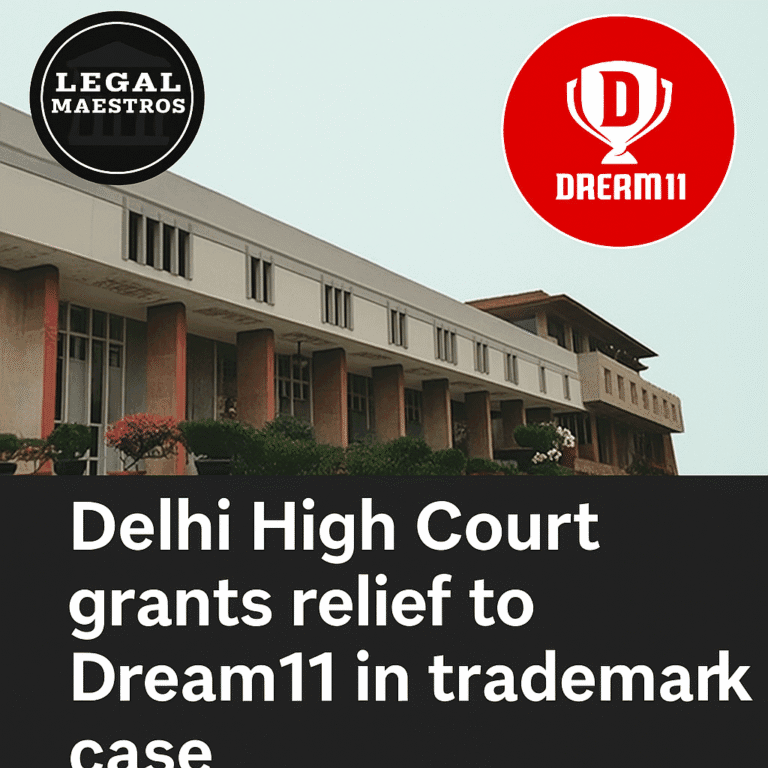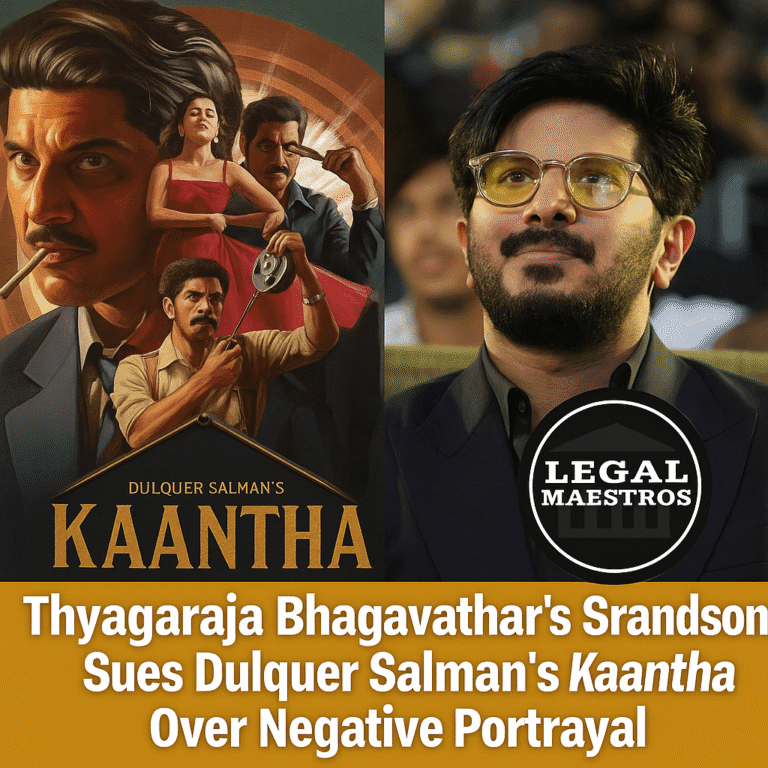
On April 22, 2025, in case related to Nidhi Bhargava N Others v., the Supreme Court of India, decide by judges Ahsanuddin Amanullah and Sudhanshu Dhulia, restored the compensation awarded by the Motor Accident Claims Tribunal (MACT) in the case.
National Insurance Company Ltd. Others,Civil Appeal of 2025 (arising out of SLP (C) No. 10664 of 2019). The Court held that the High Court was under the wrong to reduce the compensation by a substantial amount due to procedural reasons which was against the good meaning of the Motor Vehicles Act, 1988.
The Case’s Background
The case is founded on the awful auto accident that occurred on August 12, 2008. A Blue Line bus ran up against a motorbike, which apparently drove carelessly.
For any queries or to publish an article or post or advertisement on our platform, do call at +91 6377460764 or email us at contact@legalmaestros.com.
Kapil Bhargava who met his death survived a motorbike ride where his wife was the passenger.
He was killed because of the injuries and his wife, Nidhi Bhargava (Appellant No. 1) survived and sustained horrible injuries. Three people who filed the claim include the widow and 2 children of deceased under Sections 166 and 140 of Motor Vehicles Act to recover damages inflicted.
The MACT conducted its proceedings by awarding a compensation of 31.41 lakhs keeping in consideration the income of the deceased as had been mentioned in his Income Tax Returns.
For any queries or to publish an article or post or advertisement on our platform, do call at +91 6377460764 or email us at contact@legalmaestros.com.
The said amount on the appeal by the insurance company was reduced by the Delhi High Court to 16.97 lakhs after stating the 200809 income tax return submitted after the accident could not be relied upon.
Decision of the Supreme Court
The real legal issue was whether the High Court was right in disallowing the Income Tax Return in the 2008 2009 assessment year only on the ground that it was filed after the accident but relating to income before the accident.
Legal Lexicon Usage
The case concerned the way to interpret and apply the following rules:
For any queries or to publish an article or post or advertisement on our platform, do call at +91 6377460764 or email us at contact@legalmaestros.com.
- Section 166 of the Motor Vehicles Act: Talks about how the victim or their legal heirs may ask for compensation.
- Section 140 of the Act talks about being responsible for paying compensation even if you weren’t at fault.
- The idea of future potential comes from the case of Pranay Sethi v. National Insurance Co. Ltd.
- The multiplier approach from Sarla Verma v. Delhi Transport Corporation for figuring out how much money to pay.
The court also looked at the requirements for evidence, especially how reliable income tax papers are when figuring out how much money to pay in damages.
The Tribunal’s Decision and Calculation
The MACT gave ₹31.41 lakhs based on the deceased’s income tax return for FY 2007–08 (AY 2008–09). This was done by using a 14-multiplier and adding 25% for future prospects, as set forth in the cases of Pranay Sethi and Sarla Verma.
The split had:
For any queries or to publish an article or post or advertisement on our platform, do call at +91 6377460764 or email us at contact@legalmaestros.com.
- Loss of income: ₹30,70,690
- Loss of property: ₹15,000
- Loss of consortium: ₹40,000
- Costs of the funeral: ₹15,000
The High Court cut the amount of compensation
The High Court reduced the compensation to ₹16.97 lakhs since the income indicated in the return for AY 2008-09 was submitted after the tragedy.Rather, it made use of the return on AY 2007-08 that significantly reduced the amount of money that could be used to compute how much should be paid.
Study by the Supreme Court
The Supreme Court advised that the High Court manner of doing things was not legally acceptable and was not factual. It stressed the following:
Income tax returns are legal proof
The Court reiterated the notion from Malarvizhi v. United India Insurance Co. Ltd. and S Vishnu Ganga v. Oriental Insurance Company Ltd. that income tax reports are credible and legal documentation for figuring out how much money someone makes. If the financial period covered is before the accident, the timeliness of the filing does not make the contents incorrect.
For any queries or to publish an article or post or advertisement on our platform, do call at +91 6377460764 or email us at contact@legalmaestros.com.
Date of Filing vs. Time Period Covered
The AY 200809 return is of the financial period of April 1 2007 to the 31 st March 2008 prior to the accident of August 12 2008. Hence, the possibility that it was filed in September 2008 could not make it inadmissible and unusable on its own.
Why Beneficial Legislation Matters
The Motor Vehicles Act is a law that helps people and their families who have been hurt. The Court stressed that interpretation should look to the future and not stop legitimate claims because of too technical reasons.
The tribunal’s choice and method
The Court found that the Tribunal’s use of the most recent income data and the right multiplier was legal and fair. The High Court had no good cause to become involved with the Tribunal’s decision, certainly not on a limited technical basis.
For any queries or to publish an article or post or advertisement on our platform, do call at +91 6377460764 or email us at contact@legalmaestros.com.
Shivaleela and K. Ramya set a precedent
The Court said again that the Act should be read in a way that protects dependents’ rights and keeps things stable, not in a way that unfairly lowers compensation.
Final Thoughts and Directions
The Supreme Court agreed with the appeal, throwing out the High Court’s verdict and giving the MACT’s award of ₹31.41 lakhs back with 9% interest per year from the day the claim was filed. It also said that the payment had to be paid within two months, and if it wasn’t, an extra 9% percent would be added to both the principle and interest for the time it took to pay.
What the Judgment Means
This decision is an important reminder that courts must maintain the spirit of laws that are meant to help people, like the Motor Vehicles Act. It makes it less likely that tribunals will interfere with reasonable awards and stresses how important income tax returns are as evidence. The ruling will be used as a model for other cases where procedural issues make it hard to get the proper amount of money.
For any queries or to publish an article or post or advertisement on our platform, do call at +91 6377460764 or email us at contact@legalmaestros.com.
The ruling also makes it clear that the court has a duty to think about the deceased’s family’s financial stability and make sure that justice is not denied because of technical problems.





![JOB POST: Junior Associate at ASM Law Chambers, Jaipur [Freshers]](https://legalmaestros.com/wp-content/uploads/2025/11/Gemini_Generated_Image_8wrxer8wrxer8wrx-768x708.png)

